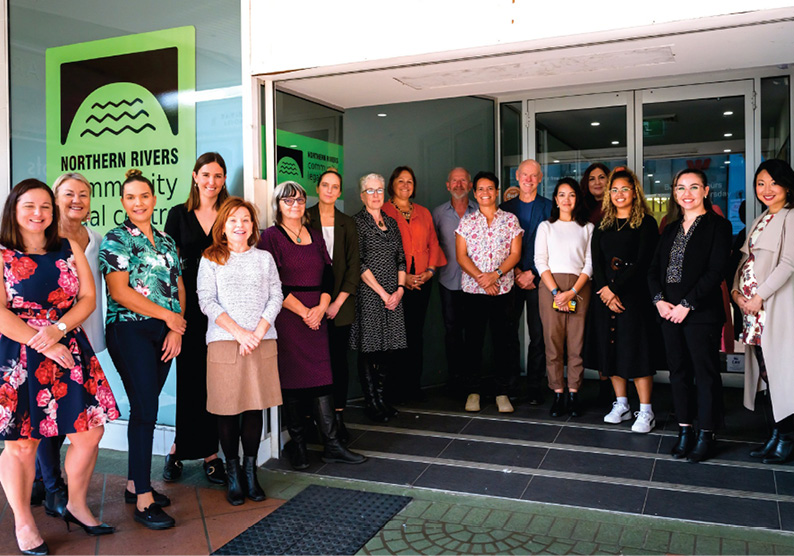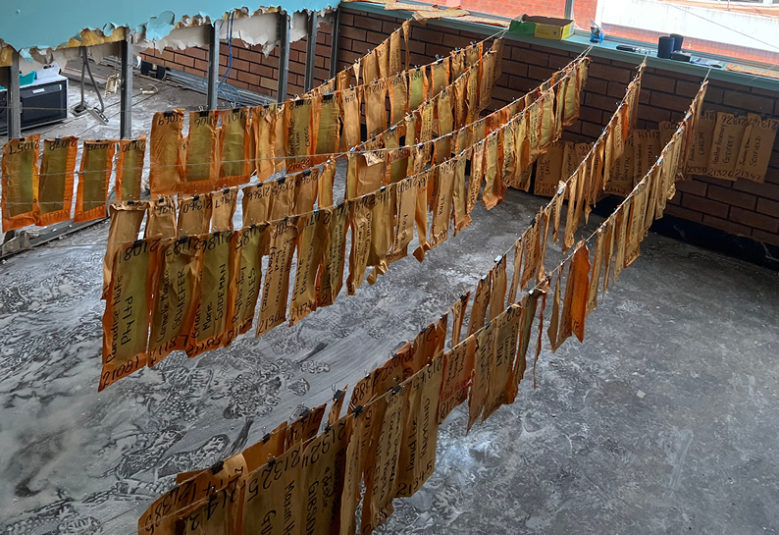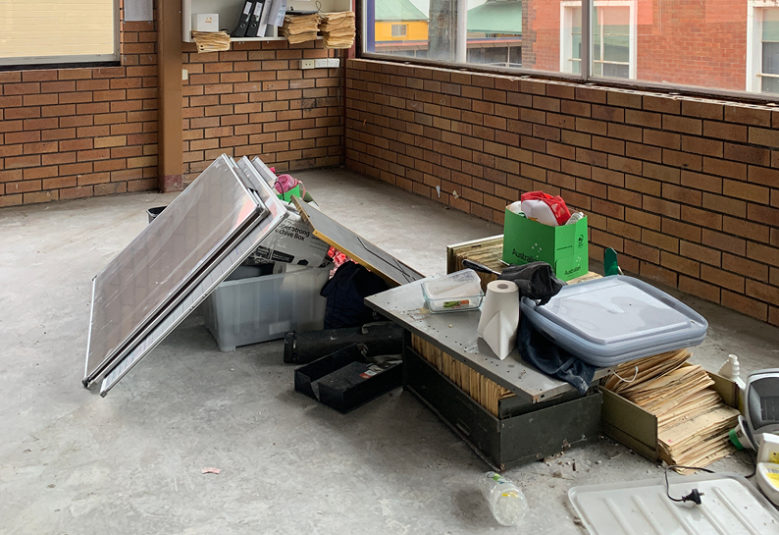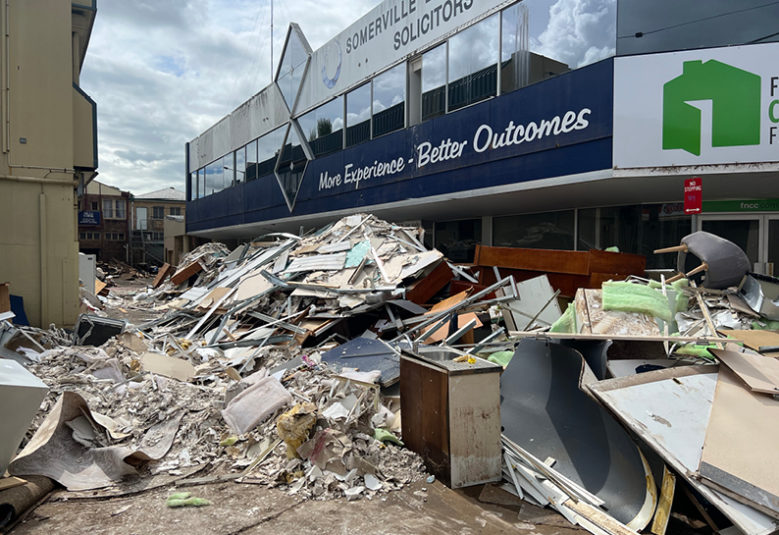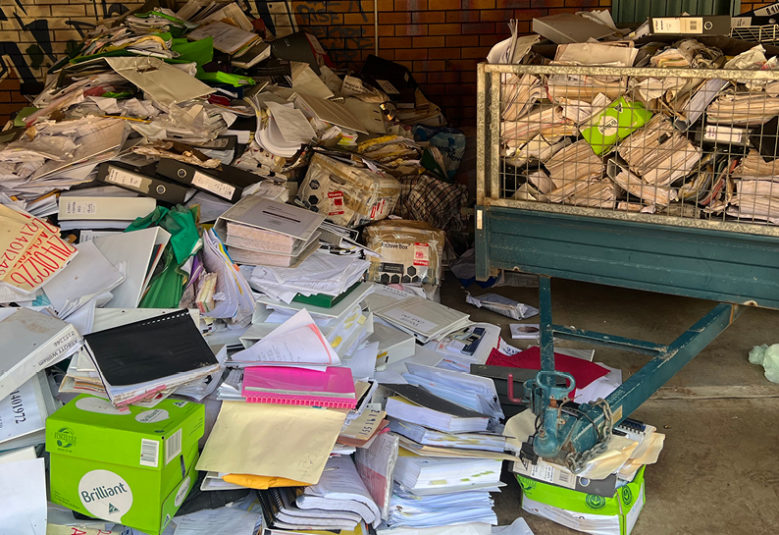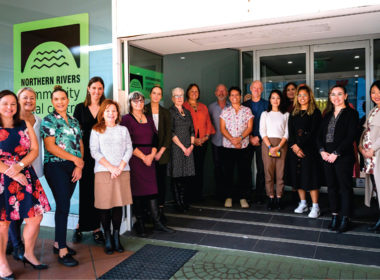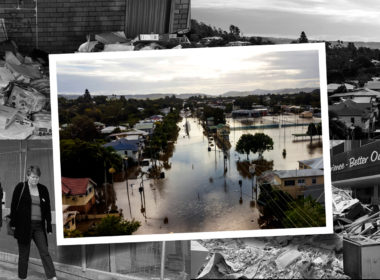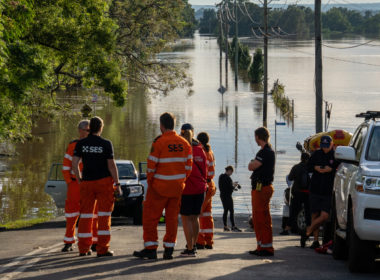After going through such a tragic time, and the service being impacted and everyone having to work in makeshift scenarios, we knew the town wouldn’t be the same again. It is changing and it will keep changing.
February 28, 2022, looked much different for the Northern Rivers Community Legal Centre (NRCLC) team than it does today.
One year ago, the first of two catastrophic floods enveloped Northern NSW and Southeast Queensland, leaving tens of thousands of people homeless, businesses destroyed, and lives lost. The latest data from the Insurance Council of Australia reveals insurers incurred more than 239,000 claims totalling $5.75 billion.
It became Australia’s biggest natural disaster since Cyclone Tracy in 1974, and its most costly.
A year on, Lismore – the town propelled into the public consciousness as the epicentre of the disaster – has started to come to life again. While the scale of the devastation is less obvious now the mud and debris has cleared, the recovery is nowhere near over.
The last time LSJ spoke with Nicole Jenkins, the NRCLC’s Centre Manager, five months after the floods in July 2022, her team was holed up in a makeshift office in one of Lismore’s only second floor buildings that didn’t flood. Their former office across the street was gutted when waters rose above 14 metres. It still sits boarded up, waiting to be renovated.
The Centre, comprising legal, tenancy and domestic violence services, has moved into its new home in Lismore’s CBD; a reality Jenkins said was “impossible” to picture for months after the disaster.
To “acknowledge and reflect” on a tumultuous 12 months, the Centre’s team is gathering for lunch in their new space, honouring their recovery journey, and supporting the staff who lost everything in the floods.
“When we spoke last year, it was impossible to even think about what the next step was for us. The makeshift office across the road from our old office was a good reminder for us to see what we had been through. But it was impossible for me to make a decision at that point about where we were going,” Jenkins tells LSJ.
“All our new furniture is on wheels now, and we have gone paperless. It is just the way we have to think.
“After going through such a tragic time, and the service being impacted and everyone having to work in makeshift scenarios, we knew the town wouldn’t be the same again. It is changing and it will keep changing.”
An audit by Lismore City Council at the end of January found an occupancy rate of 60 per cent across the CBD area. The previous post flood audit in August 2022 found only 38.3 per cent occupancy.
 Nicole Jenkins, Northern Rivers Community Legal Centre
Nicole Jenkins, Northern Rivers Community Legal Centre
Jenkins says housing remains the biggest legal and non-legal issue for post flood recovery. The team is encountering clients having trouble with eligibility for the Government’s temporary modular homes (pods) scheme, and Jenkins says home buybacks for the most vulnerable areas are too slow.
“We are finding that some people have been removed from the pods and have nowhere else to go. The community is waiting on the reconstruction committee to decide on what is happening on the buybacks and land swaps. That needs to happen a lot quicker than it is,” Jenkins says.
“Insurance is also an ongoing challenge with people putting in claims, and the length of time that is taking. We deal with many insurance claims being refused and then supporting clients going through that process of asking for those to be reviewed.”
The Centre has developed an internal flood recovery unit, with a designated outreach van that visits communities in the Northern Rivers region and the people living in the temporary accommodation pods. Jenkins says the team has greater concerns for the people who have never been “vulnerable” or “at-risk” before.
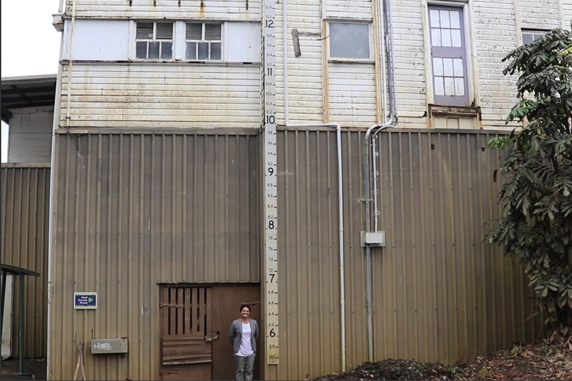
“We have been doing ‘blitz days’ where we encourage people to come in to speak to us about what support they may need. If there are grants they are eligible for, we assist them in applying,” she says.
“One of the staff spoke to a friend who was impacted by the flood and still living in his shed. She told him she works for a community legal centre and to come for advice. He rang us a few weeks later. He is someone we would have thought had the capability to ask for help. We have lots of work to do to ensure we are finding those people.
“There is going to be legal and non-legal issues that we can assist community with for many years to come. We encourage people to reach out to us.”

